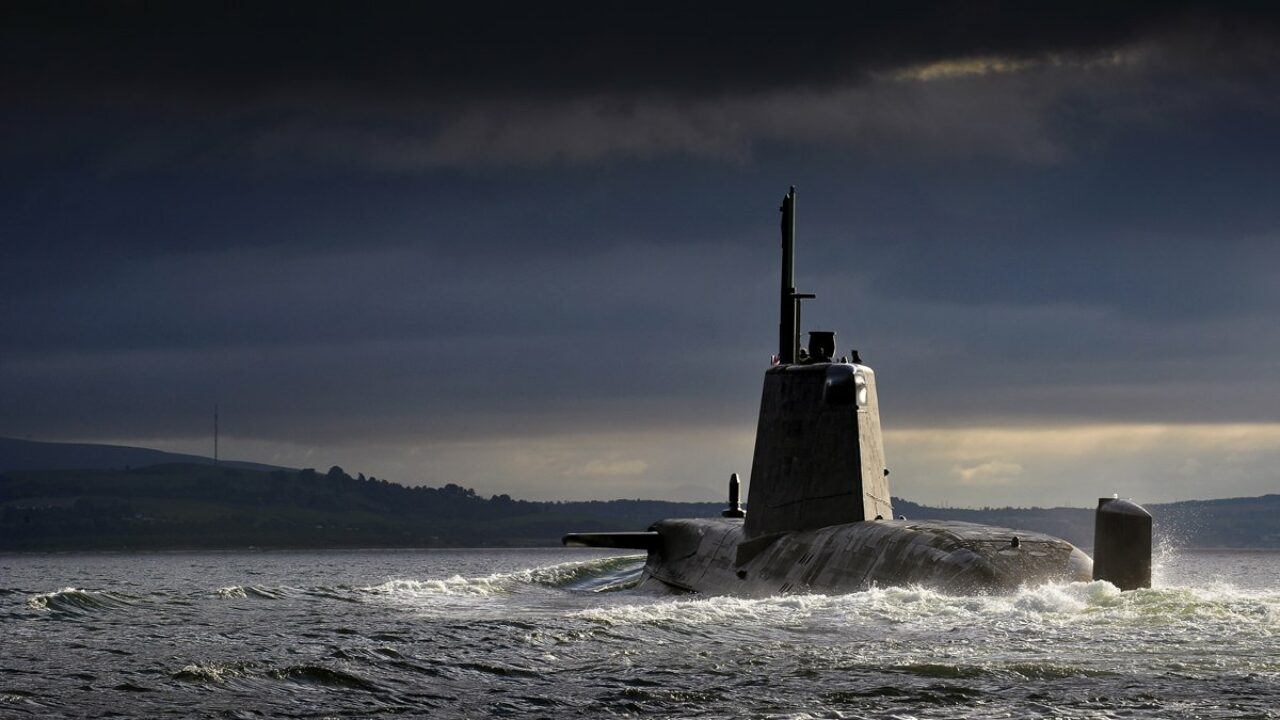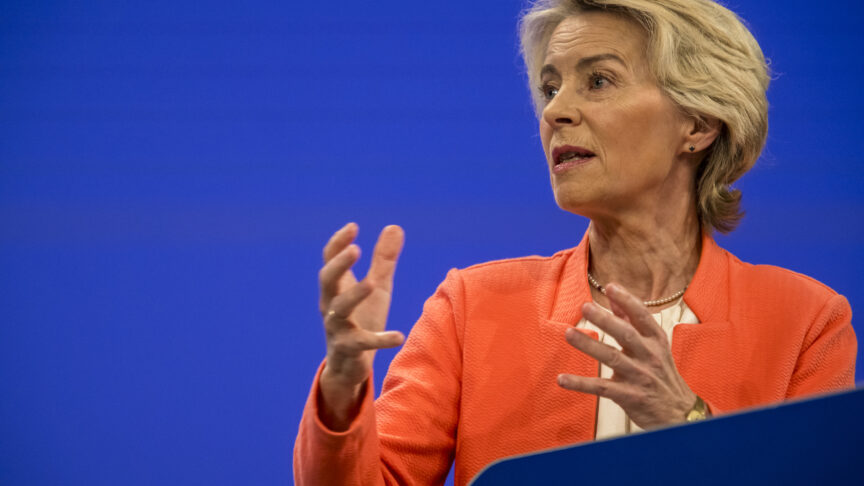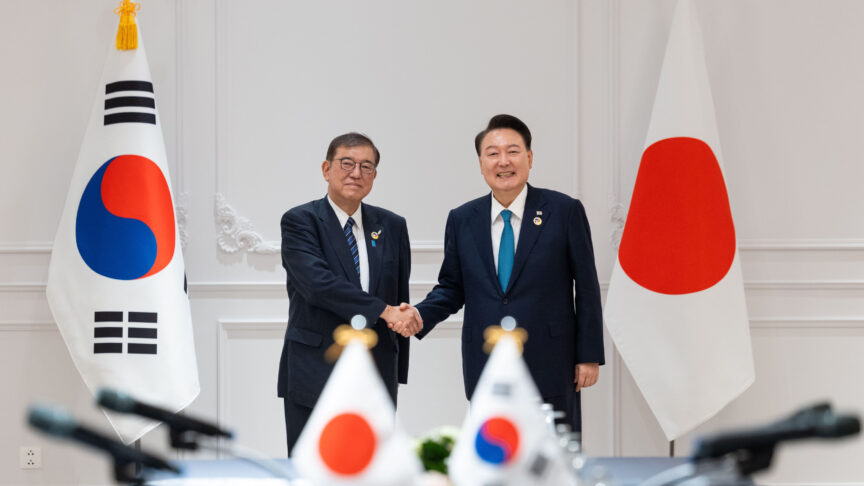After AUKUS: The uncertain future of American and European cooperation in the Indo-Pacific
Europeans – especially the French – want Washington to explain its decision to ally with Australia and the UK. But the EU also needs to decide how to approach the Indo-Pacific
Last Wednesday, it seemed as though the European Union was, finally, moving from strategic cacophony to strategic autonomy. In the last couple of years, Germany, France, and the Netherlands had each published their own Indo-Pacific strategies; but last week, the EU finally released its own strategy on the region. The same day, however, the United States announced a new trilateral partnership with Australia and the United Kingdom. The arrangement includes the sharing of nuclear-powered submarine technology and entails the Australians cancelling a submarine contract with Naval Group, a major French defence manufacturer.
France’s foreign minister, Jean-Yves Le Drian, and his armed forces minister colleague, Florence Parly, were quick to put out a communiqué in response. In it, they blasted the “AUKUS” partners’ choice to exclude France from joint activity in a region deemed a priority by all parties. The ministers emphasised the pre-existing French role and engagement in the Indo-Pacific, and described the move as ‘lacking in coherence’. Moreover, upset was increased by the fact that the Australians had held ministerial meetings with the French at the end of August, where they reiterated their commitment to their strategic partnership but failed to mention anything about the emerging alliance. Nor had the US, with which France does not lack communication channels.
Days later, French anger is still raging. Le Drian was defence minister when the Franco-Australian submarine deal was signed in 2016, and his is not a character prone to outbursts. But this weekend, he went on national television to declare that: “there has been lying, duplicity, a major breach of trust and contempt”. He also said that the withdrawal of the ambassadors for the first time ever in the history of both bilateral relationships was a “very symbolic” act to show “there is a serious crisis between us”. As tensions continue to rise, Joe Biden is said to have requested a phone call with Emmanuel Macron.
In fact, there are three separate – but overlapping – issues at hand. The first comprises the loss for the French of a huge contract (although, out of the €56 billion contract, ‘only’ €8 billion was for the French part) and the method used to announce the cancellation. The second is what the Americans actually want from the EU on matters in the Indo-Pacific; while the last is whether Europeans are happy to increase their footprint and capabilities in this distant but vital region.
For Paris, the humiliation lies not only in the secretive nature of the deal – in the making for several months – but also in its de facto sidelining from a part of the world it has, in recent years, pressed hard for Europe to invest in. Indeed, in 2018, Macron actually chose Sydney as the location for the launch of the French Indo-Pacific strategy. France has 1.6 million citizens in the region, and its exclusive economic zones there are collectively the second largest in the world.[1]
In 2018, Emmanuel Macron actually chose Sydney as the location for the launch of the French Indo-Pacific strategy
This backdrop helps explain why ministers, officials, and numerous observers in Paris have said the events of the past week will now pave the way for more European strategic autonomy. Yet this is also a moment of risk for the French ahead of their assumption of the EU presidency in 2022, which they had wished to use to promote European strategic autonomy and an enhanced focus on the Indo-Pacific. Indeed, the French view of what should happen next is not widely shared elsewhere in the EU: Berlin has made no response to the AUKUS news, despite a visit to Paris by Angela Merkel the day of the announcement; nor has The Hague. Brussels has only issued a statement by Ursula von Der Leyen, which it put out four days after the announcement, while European Council president Charles Michel has expressed his frustration with Europe’s American ally in the margins of the current UN General Assembly in New York. Indeed, some even argue this development should mark the end of European strategic autonomy efforts, if they mean decoupling from the US.
No definition of European strategic autonomy has ever entailed decoupling from the US. But the question remains – posed by Biden’s election victory but still unsolved – of what a renewed transatlantic relationship should look like as Washington continues to concentrate on domestic issues and shifts its attention to Asia. The latter seems an inevitable process, set in train under Barack Obama. In which case, a major question facing EU member states capitals is: What are Washington’s expectations of Europeans in the Indo-Pacific? Without receiving answers, the AUKUS crisis risks leaving the wound to fester much longer than hurt caused by previous transatlantic rows; this time, it has stung Paris extremely deeply. In a context in which the US has been asking its European allies to coordinate with it to take on China in the Indo-Pacific, European policymakers are wondering what happened to the transatlantic two-way street.
But are Europeans ready to enlarge their footprint in the Indo-Pacific in response to US requests? The EU’s new Indo-Pacific strategy – agreed by all member states – appears to indicate a willingness to do so. But the lack of coordination and communication with Europe’s main ally – and the security guarantor of most EU member states – leaves room for worry.
The EU’s strategy calls for a deepening of the union’s engagement “with partners in the Indo-Pacific to respond to emerging dynamics that are affecting regional stability.” In a word, to respond to an increasingly assertive China. Therein lies the rub: as ECFR’s new paper on the Indo-Pacific challenge lays bare, Europe still has an “ambivalent approach” to Beijing that comes from profound differences between member states over how to deal with China. The paper encourages the EU – as it puts flesh on the bones of its Indo-Pacific strategy – to work with major partners in the region, such as Japan and South Korea – countries where AUKUS found great favour when it was announced. For them, it was a sign that America was ‘back’. As my ECFR colleagues write, Europeans should discuss the implementation of their Indo-Pacific strategy with these regional partners, as they are more dependent on China economically and much closer geographically.
Once again, the EU finds itself facing a choice: French leaders are still angry, but Paris is also still the most ambitious European capital in terms of its foreign policy agenda. It pushed for an EU Indo-Pacific agenda as early as 2018 and considers itself a player in the region. It understands the concerns shared by other partners in the Indo-Pacific regarding China’s activities, both economic and military. For matters to move forward, the French await an explanation from the US about its approach. But the bottom line for Europeans remains the need to prepare, ideally with America, to face an extremely assertive China and to redefine the transatlantic partnership – particularly if it is to be the basis for a new world order.
[1] France and Security in the Indo-Pacific, French Armed Forces Ministry, 2019.
The European Council on Foreign Relations does not take collective positions. ECFR publications only represent the views of their individual authors.



